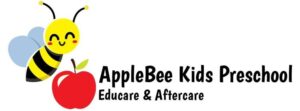Unlocking Preschool Academic Success: Building a Foundation for Lifelong Achievement
Unlock the key to preschool academic success and prepare your child for a smooth transition to kindergarten and beyond. Discover the importance of early literacy, math skills, social readiness, and nurturing environments in setting the stage for academic achievement. Explore how preschool plays a crucial role in building a strong foundation for your child’s educational journey.
Preparing for Preschool: How Preschool Sets the Stage for Academic Success
In the early years of a child’s life, the foundation for academic success is laid. Preschool plays a pivotal role in this crucial stage, providing children with a nurturing environment where they can develop essential skills and build a solid educational framework. In this article, we will explore the ways in which preschool prepares children for the transition to kindergarten and beyond. From fostering academic abilities to nurturing social and emotional readiness, we’ll uncover the key aspects that make preschool a crucial stepping stone toward a lifetime of learning. Therefor there are many benefits of preschool vs. staying home.

Academic Skills Development
Developing Early Literacy and Math Abilities
Preschool is a dynamic learning space where young minds begin to flourish. One of the primary objectives of preschool is to foster early literacy and math abilities. Through interactive activities, storytelling, and hands-on experiences, children are introduced to the wonders of language and numbers. Preschoolers engage in letter recognition, phonics, and basic counting, laying the groundwork for future academic achievements. By promoting a love for reading and exploration, preschool equips children with the necessary tools to excel in language arts and mathematics, giving them a head start in their educational journey.
Social and Emotional Readiness
Social and emotional readiness is an important life skill that helps us to interact with others, develop positive relationships, and manage our emotions. It is essential for our success in school, work, and personal life.
In order to be socially and emotionally ready, we must learn how to express ourselves effectively, recognize the feelings of others, practice empathy and compassion towards those around us, resolve conflicts peacefully, set boundaries for ourselves and others, take responsibility for our own actions as well as the consequences of them.
It is important to remember that social and emotional readiness requires practice. With dedication and effort we can learn these skills which will help us to thrive in all aspects of life.
Nurturing Strong Foundations for School Success
Academic success is not solely reliant on cognitive skills; social and emotional readiness also play a pivotal role. Preschool provides a nurturing and supportive environment for children to develop crucial social and emotional competencies. Through interactive play, collaborative projects, and guided interactions, preschoolers learn vital skills such as sharing, taking turns, and working in groups. These experiences foster empathy, communication, and conflict resolution abilities, essential for building positive relationships with peers and teachers. Such social and emotional readiness enables children to thrive in classroom settings, contributing to a harmonious and productive learning environment that leads to result in preschool success.
Get In touch
Leave us a message
4 Claret Road, Table View, 7441
(021) 556 4146
office@applebeekids.com
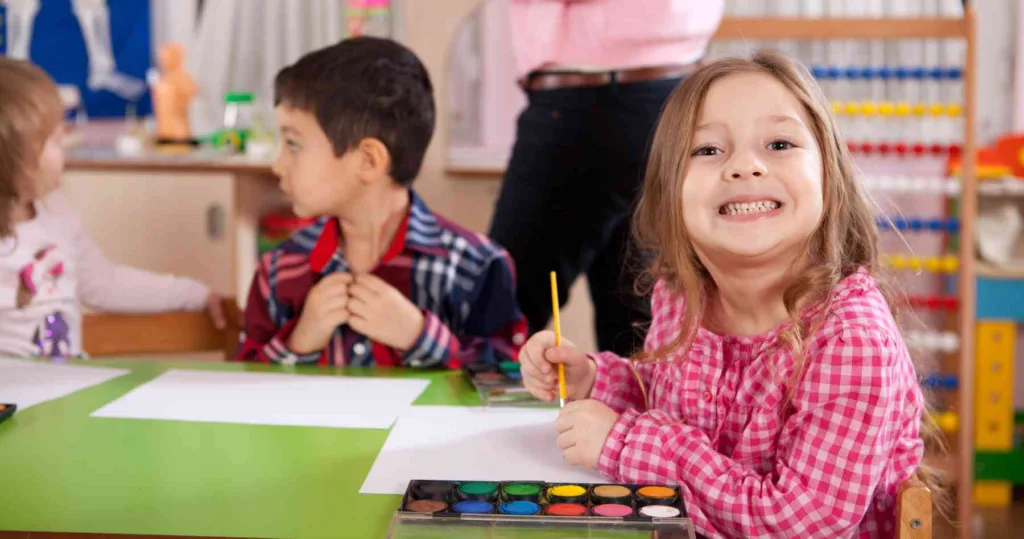
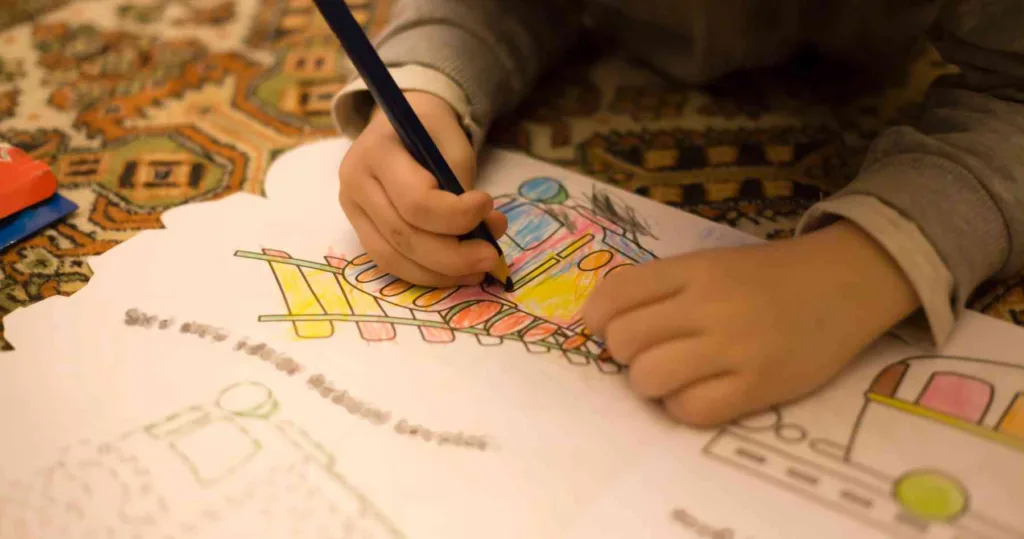
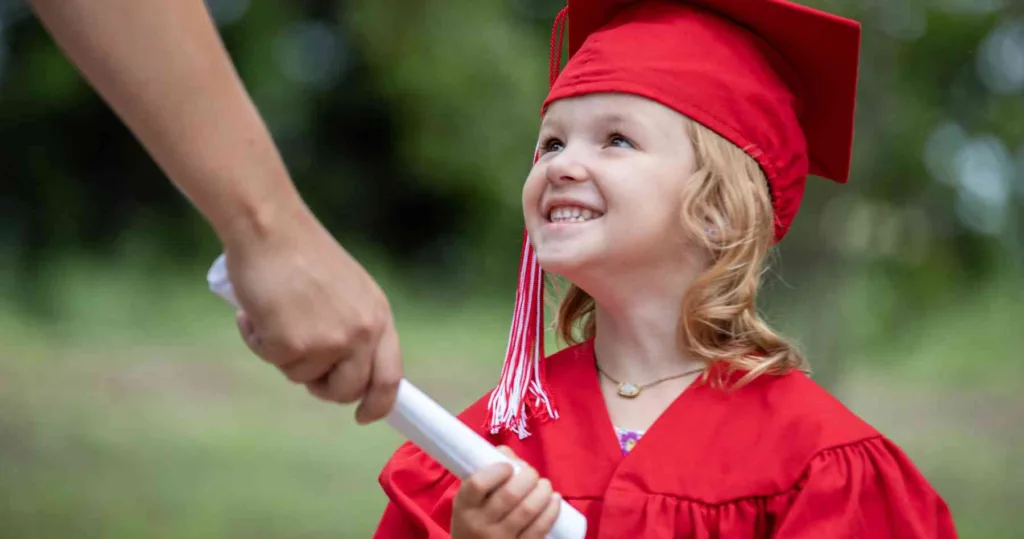
Tips for Parents: Supporting the Transition to Kindergarten Heading: Ensuring a Smooth Transition for Your Child
As a parent, you play a crucial role in preparing your child for the transition to kindergarten. Here are some tips to help ensure a smooth and successful transition:
-
Establish routines: Create a consistent daily routine that mirrors the structure of a school day, including regular mealtimes, playtime, and designated learning activities.
-
Foster independence: Encourage your child to complete age-appropriate tasks independently, such as dressing themselves, organizing their belongings, and following simple instructions. This promotes self-confidence and autonomy.
-
Read together: Engage in regular reading sessions with your child to strengthen their literacy skills and foster a love for books. Encourage discussions about the story and characters to enhance comprehension and critical thinking.
-
Promote social interactions: Arrange playdates and encourage your child to engage in social activities with peers. This helps develop social skills and prepares them for the collaborative nature of a classroom.
-
Communicate with teachers: Establish open lines of communication with your child’s preschool teachers and future kindergarten educators. Stay informed about your child’s progress and seek guidance on how to support their academic and social development.
ExcellentBased on 28 reviews Trustindex verifies that the original source of the review is Google.
Trustindex verifies that the original source of the review is Google. Pieter Kotze2022-03-11Great pre-primary school in Table View, it has been there for many years and we are now on the verge of sending the 2nd generation there and although they have been around for years, the staff are current and up to date with the latest in childcare and early childhood education, peace of mind for sure...Trustindex verifies that the original source of the review is Google.
Pieter Kotze2022-03-11Great pre-primary school in Table View, it has been there for many years and we are now on the verge of sending the 2nd generation there and although they have been around for years, the staff are current and up to date with the latest in childcare and early childhood education, peace of mind for sure...Trustindex verifies that the original source of the review is Google. Gareth Bolt2021-08-20Jackie,Maude and Applebee team look after our little boy so wonderfully!Trustindex verifies that the original source of the review is Google.
Gareth Bolt2021-08-20Jackie,Maude and Applebee team look after our little boy so wonderfully!Trustindex verifies that the original source of the review is Google. Shakurah Hackley2021-08-20My son loves his teachers. They care for our kids and go the extra mile.Trustindex verifies that the original source of the review is Google.
Shakurah Hackley2021-08-20My son loves his teachers. They care for our kids and go the extra mile.Trustindex verifies that the original source of the review is Google. Nolu Mandindi2021-08-19My daughter been a student since 2019, her brother joined her in 2021, we couldn't be happier with the professionalism shown by the staff. The constant feedback from teachers on progress is on point.
Nolu Mandindi2021-08-19My daughter been a student since 2019, her brother joined her in 2021, we couldn't be happier with the professionalism shown by the staff. The constant feedback from teachers on progress is on point.
Building a Strong Foundation for Lifelong Learning
Preschool is a transformative phase where children embark on a journey of growth, learning, and discovery. By focusing on the development of academic skills, social competencies, and emotional readiness, preschool sets the stage for academic success. It equips children with a strong foundation, empowering them to navigate the challenges of kindergarten and beyond. As parents and educators, we have the privilege of nurturing these young minds and instilling a love for learning that will endure throughout their educational journey and beyond. With preschool as their launching pad, children are primed to soar to new heights of academic achievement.
Engaging in Preschool Academic Success Activities
Preschool is a critical time for laying the foundation of academic success. By incorporating fun and educational activities into your child’s daily routine, you can support their cognitive development and set them on the path to achievement. Here are some engaging activities that promote preschool academic success:
-
Letter Recognition Games: Help your child become familiar with letters by playing games that focus on letter recognition. Use flashcards, letter puzzles, or alphabet blocks to make learning letters interactive and enjoyable. You can also create a letter scavenger hunt around the house or play “I Spy” with objects that start with different letters.
-
Counting and Number Activities: Develop your child’s math skills through counting and number activities. Count objects together, arrange toys in numerical order, or engage in simple addition and subtraction games. Incorporate number songs and rhymes into their daily routine to make learning numbers fun and memorable.
-
Storytelling and Creative Writing: Encourage your child’s imagination and language skills through storytelling and creative writing activities. Provide them with drawing materials and ask them to illustrate a story or ask them to dictate a story while you write it down. This activity enhances their narrative skills and fosters a love for storytelling and writing.
-
Science Experiments: Spark your child’s curiosity about the world through simple science experiments. Conduct experiments like mixing colors, exploring plants and their growth, or observing changes in materials. These hands-on activities promote critical thinking, observation skills, and a love for scientific exploration.
-
Sensory Play: Engage your child in sensory play activities that stimulate their senses and enhance their cognitive development. Set up sensory bins with materials like sand, water, or rice, and provide tools for scooping, pouring, and sorting. Sensory play enhances problem-solving abilities, fine motor skills, and language development.
-
Gross Motor Games: Incorporate gross motor activities into your child’s routine to support their physical and cognitive development. Engage in activities like hopping, jumping, or playing Simon Says. These activities help develop coordination, balance, and spatial awareness, which are crucial for overall academic success.
Remember, the key is to make these activities enjoyable and age-appropriate for your child. By integrating these engaging activities into your child’s daily life, you can foster their love for learning, boost their academic skills, and set them on a path to preschool academic success.
The Power of Play-Based Learning
Unleashing Creativity and Critical Thinking through Play
One of the distinguishing features of preschool education is the emphasis on play-based learning. Play is a child’s natural way of exploring the world, making sense of concepts, and honing their cognitive abilities. Preschool leverages this innate curiosity and creativity by providing hands-on activities and interactive play experiences.
Through play, children engage in imaginative scenarios, problem-solving challenges, and sensory exploration. They learn to express themselves, think critically, and make decisions. Play-based learning fosters essential skills such as creativity, communication, and adaptability, which are vital for academic success in later years.
Embracing Diversity and Cultivating Curiosity
Celebrating Differences and Cultivating a Love for Learning
Preschool is a melting pot of diversity, where children from various backgrounds come together to learn and grow. This multicultural environment exposes children to different perspectives, traditions, and languages, fostering inclusivity and empathy. By celebrating diversity, preschool encourages children to appreciate and respect differences, setting the stage for a more tolerant and harmonious society.
Additionally, preschool nurtures curiosity and a thirst for knowledge. Teachers create stimulating learning environments that encourage exploration and inquiry. Through engaging activities, field trips, and hands-on experiments, children develop a natural curiosity about the world around them. This curiosity fuels a lifelong love for learning, motivating children to seek knowledge and expand their horizons throughout their academic journey.
Preschool serves as a pivotal stepping stone for children, preparing them for academic success and fostering a love for learning. Through the development of academic skills, social and emotional readiness, play-based learning, embracing diversity, and cultivating curiosity, preschool lays a strong foundation for children’s lifelong educational journeys.
As parents, educators, and advocates, we recognize the critical role that preschool plays in shaping the future of our children. By providing a nurturing, stimulating, and inclusive environment, we empower our little ones to thrive academically, socially, and emotionally. Let us continue to support and invest in high-quality preschool education, ensuring that every child has the opportunity to reach their full potential and embark on a path of lifelong learning.
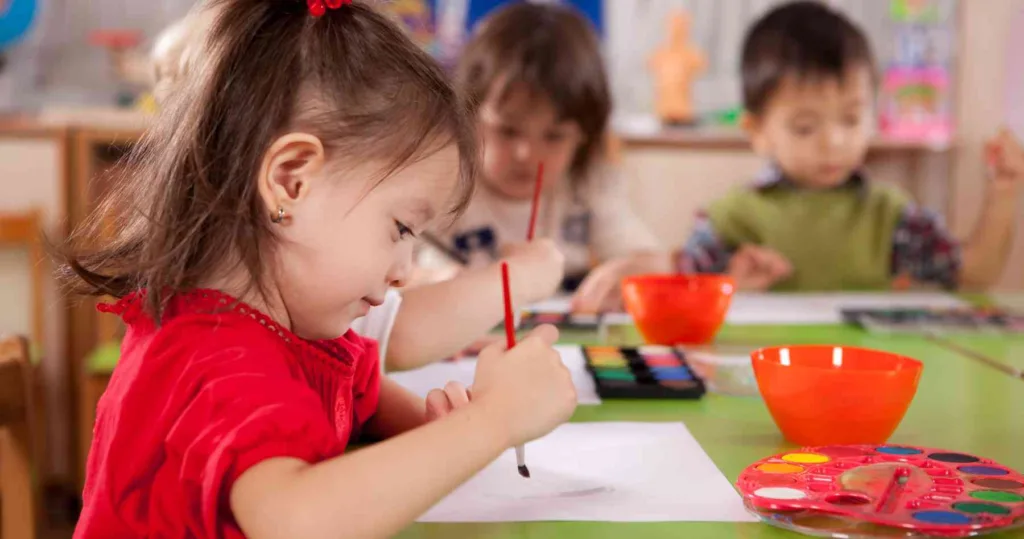
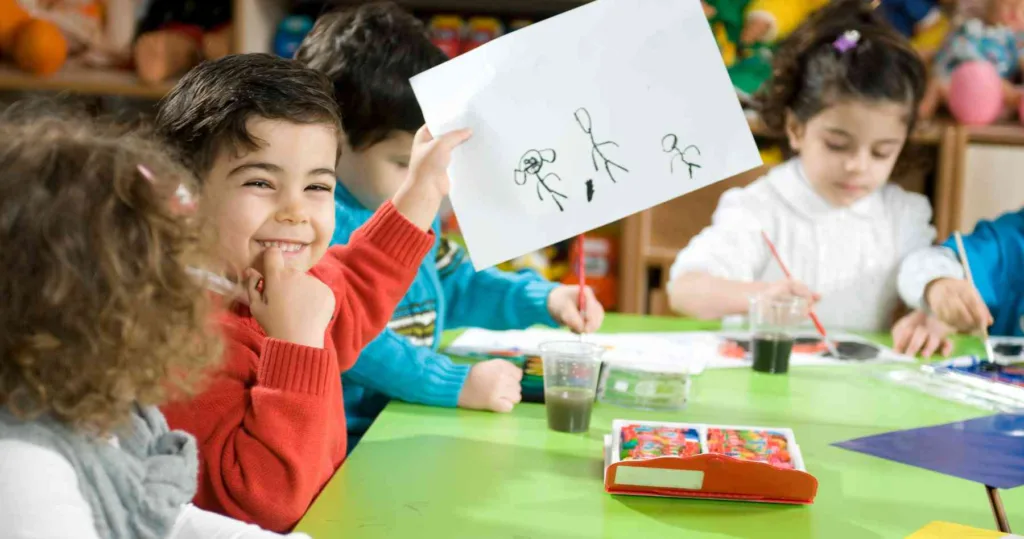
Benefits of Early Childhood Education
Early childhood education plays a vital role in a child’s development and sets the stage for their future success. Here are some key benefits of early childhood education:
-
Cognitive Development: Early childhood education provides a stimulating environment that promotes cognitive development. Through age-appropriate activities, children enhance their language skills, critical thinking abilities, problem-solving techniques, and creativity. They learn to explore, experiment, and make connections, laying a strong foundation for academic achievement.
-
Social and Emotional Development: Early childhood education focuses on fostering social and emotional development. Children learn to interact with peers, collaborate, share, and develop empathy. They gain valuable social skills, emotional regulation, and conflict resolution strategies. These skills are essential for building positive relationships and navigating social situations throughout their lives.
-
School Readiness: Attending early childhood education programs prepares children for the transition to formal schooling. They learn essential skills such as following instructions, listening, and participating in group activities. They become familiar with routines, structure, and expectations, enabling a smoother transition to kindergarten and beyond.
-
Improved Language and Communication Skills: Early childhood education provides a rich language environment that supports language acquisition and communication skills. Children engage in conversations, storytelling, and vocabulary-building activities, enhancing their verbal and non-verbal communication abilities. Strong language skills are crucial for future academic success and overall cognitive development.
-
Enhanced Motor Skills: Early childhood education incorporates activities that promote the development of fine and gross motor skills. Through play and structured activities, children refine their hand-eye coordination, balance, and body control. This lays the groundwork for future physical activities and contributes to their overall physical well-being.
-
Long-Term Educational Attainment: Research consistently shows that participation in early childhood education leads to better educational outcomes in the long run. Children who attend high-quality early education programs are more likely to graduate from high school, pursue higher education, and have successful careers. Early childhood education sets a positive trajectory for lifelong learning and personal growth.
-
Closing Achievement Gaps: Early childhood education has the potential to narrow achievement gaps among children from diverse backgrounds. It provides equal opportunities for children to access quality education, regardless of their socio-economic status or cultural background. Early intervention and targeted support during the critical early years can help level the playing field and ensure all children have an equitable start to their educational journey.
Early childhood education lays a strong foundation for a child’s holistic development. By nurturing their cognitive, social, emotional, and physical growth, it equips them with the skills and confidence needed to thrive academically and in life. Investing in high-quality early childhood education is a powerful way to support children’s overall well-being and unlock their full potential.

